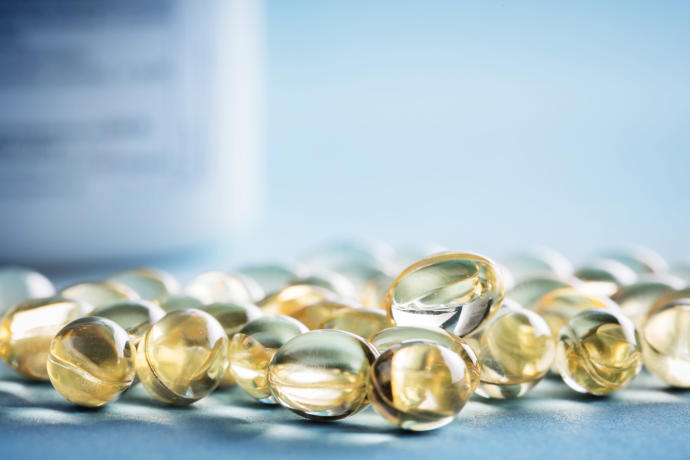Their label carries big promises and people buy them without fear - because “if it's natural, it probably can’t hurt,” but reality shows that supplements can also lead to unexpected visits to hospitals - and in some cases worse.
On paper, one can understand why supplements have become one of the hottest trends of recent years. We all know that vitamins, minerals and antioxidants are good for our health, so why not take more of them to improve various health concerns?
The very logical division that’s made between drugs and dietary supplements helps the public understand that supplements aren’t really meant to treat diseases and medical problems, but this separation can also be misleading. Precisely because these aren’t drugs, people may think that supplements can't endanger them. Experts in the field claim otherwise.
Dr. Susan Farrell is an expert in emergency medicine and toxicology at Harvard Medical School. In an article published on the university's website, she referred to a study published in the prestigious journal New England Journal of Medicine, in which researchers followed for a decade what was happening in 63 US emergency rooms to understand how many patients became ill as a result of the use of dietary supplements. During this decade, 23,000 visits the ERs surveyed resulted from the use of dietary supplements. These are the four main supplements that led to these unfortunate cases.

1 - Supplements that help with weight loss
Many people came to ERs who took supplements that help with weight loss, with an average age of 32 and most of them women. More than 10% of these cases led to hospitalization, especially among women after age 65. Such supplements, designed to suppress appetite or alternatively "speed up" gastrointestinal activity, are responsible for more than a quarter of emergency room visits stemming from dietary supplements.
2 - Supplements to improve sexual function
While many today still expect women to stick to a certain shape and "push" them to do dangerous things to lose weight, many men also believe that their "masculinity" is measured by their performance in the bedroom and therefore take supplements that promise to improve libido, function and energy levels.
Many men, and also some women, go to the ER after taking pills that promise to improve their sex lives. The main problem with such supplements, which many choose to purchase online because of shame or embarrassment, is that they aren’t adequately monitored, and are often infused with substances not approved by the FDA. Some have active ingredients that are also found in medications and may conflict with other medications that they are taking already.
Therefore, experts emphasize, if you’re thinking of taking such supplements, it’s important to do so while receiving professional medical advice and also check in the FDA database whether the supplements are approved for use and what exactly they contain.
<br><strong>3 - Bodybuilding supplements</strong>
In pursuit of the perfect body, some people forget that the main purpose of exercise is to improve health, and do things that actually do the opposite and harm their body. According to Farrell, many studies show that steroids and supplements with substances that act like steroids, significantly increase the risk of medical problems, especially in the liver. Some of these injuries can be irreversible and even endanger your life, and have long term consequences.
4 - Supplements to increase energy
There are many things we can do to naturally increase our energy, but swallowing a pill can be much more tempting. Farrell says that about 10% of ER visits result from using supplements due to precisely this reason, emphasizing that these pills are often unsupervised and contain substances that cause very unwanted side effects.
Such supplements can contain a long list of components, some of which appear on paper to be beneficial to our body such as vitamin B12, folic acid (B9) and niacin (B3). These vitamins are indeed needed to maintain health and energy levels, but at too high rates, especially if taken without a deficiency, they cause a number of medical problems, some of which can be life-threatening.
It's important to understand that raising your energy level will be much more effective if you do it in a natural way that benefits your body instead of "forcing" it on it. Many studies have found that a balanced diet, adequate exercise, reduction of mental stress and quality sleep at night greatly affect energy throughout the day. Periodic blood tests will also help to understand if you really have nutritional deficiencies - and treat them on a spot basis, instead of taking supplements that promise to improve your life - when in practice you have no real need for them.